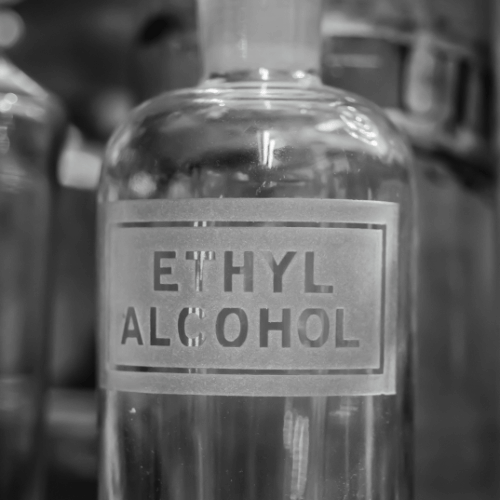What is EtOH? Understanding Its Risks, Effects, and Treatment Options
What is EtOH (Ethyl Alcohol)?
Definition and Meaning
EtOH is a chemical abbreviation for ethanol, a type of alcohol commonly found in alcoholic beverages. The term “EtOH” comes from its molecular structure, where “Et” stands for the ethyl group and “OH” represents the hydroxyl group, which gives ethanol its distinct properties. Also referred to as ethyl alcohol, grain alcohol, or pure ethanol, EtOH is a colorless liquid with a variety of uses.
Definition and Meaning
History and Common Uses of Ethanol
Historical Use of EthanolThe history of ethanol dates back thousands of years, with its first recorded production around 7000–6600 BC in ancient China. Over time, ethanol has been used in various applications, including alcoholic drinks, antiseptics, and industrial solvents. During fermentation, yeast consumes sugars to produce both ethanol and carbon dioxide as byproducts, highlighting the chemical processes involved in the production of alcoholic beverages.
Common Uses of Ethanol Today, ethanol remains one of the most versatile compounds, used not only in drinking alcohol but also in industries as a solvent, fuel, and even in addiction medicine research. It plays a critical role in the production of alcoholic beverages like beer, wine, and spirits. Clinical and experimental research, such as studies published in the journal Alcoholism: Clinical and Experimental Research, explores the variations in alcohol by different manufacturers and beverage types, illustrating the impact of these variations on consumption and potential drinking behaviors.

Effects of EtOH Abuse
Short-Term Effects
Excessive consumption of EtOH can lead to life-threatening consequences, including alcohol poisoning, which causes vomiting, unconsciousness, and respiratory failure. Short-term effects also include impaired judgment, increased risk of accidents, and memory blackouts.
Long-Term Effects
Chronic EtOH abuse is linked to severe health problems such as liver damage, heart disease, and mental health issues. Prolonged exposure to excessive alcohol can also result in ethanol addiction, negatively impacting personal and professional relationships.
Alcohol addiction treatment is crucial for managing these long-term health problems, offering personalized recovery plans that include detoxification, inpatient care, and ongoing support to improve quality of life.
Risks and Dangers of Alcohol Abuse
Risk of Addiction
Addiction to ethyl alcohol develops when individuals experience alcohol dependence, often characterized by an inability to stop drinking despite negative consequences.
Health Complications
Frequent binge drinking and chronic drinking increase the risk of developing fatty liver disease, high blood pressure, and weakened immune systems. EtOH abuse also raises the likelihood of accidents and even life-threatening situations like alcohol poisoning.
Signs of Alcohol Use Disorder

Behavioral Signs
Behavioral signs include binge drinking, using EtOH to cope, and neglecting responsibilities. Individuals may also experience withdrawal symptoms when attempting to stop drinking.
Physical Signs
Physical signs of ethanol abuse include blackouts, tremors, and significant changes in weight or sleep patterns. These symptoms indicate the need for immediate intervention and support.
Diagnosing Alcohol Use Disorder
A diagnosis of alcohol use disorder (AUD) involves assessing drinking patterns and the presence of withdrawal symptoms. Healthcare providers may also evaluate the impact of EtOH excess on daily life.
Treatment Options for Alcohol Abuse

Therapy
Cognitive-behavioral therapy (CBT) is a proven method for addressing alcohol misuse. Additional therapies, like family therapy and motivational enhancement therapy, can provide holistic support.
Medications
Medications can help manage withdrawal symptoms and reduce cravings. Under medical supervision, these treatments can minimize the risk of relapse and support individuals in maintaining sobriety.
Recovery from Alcohol Abuse
Recovery begins with acknowledging the problem and seeking help. Whether through an addiction treatment facility or outpatient care, the key to recovery lies in finding the right resources and support systems.
Prevention of Alcohol Abuse
Education and Awareness: Promoting awareness of the dangers of excessive drinking can help prevent EtOH abuse. Understanding the risks associated with alcohol consumption is vital for making informed decisions. It is crucial to recognize the potential health risks when people drink alcohol, including addiction and damage to critical body parts and the brain.
Healthy Coping Mechanisms: Adopting healthy habits like exercise and mindfulness can reduce the reliance on alcohol as a stress-relief method, fostering long-term well-being.
EtOH is more than a chemical compound—it’s a substance with far-reaching effects on the human body and society. Understanding its risks and seeking timely help can pave the way to a healthier future. If you or someone you know struggles with EtOH abuse, reach out to an addiction treatment facility today.
Visit SAMHSA for more information or contact us today.
Frequently Asked Questions
In medical terms, EtOH is the chemical abbreviation for ethanol, a type of alcohol commonly found in alcoholic beverages. Medical professionals use the term EtOH to describe alcohol-related measurements, such as blood alcohol concentration (BAC), or to document alcohol use in clinical settings. It is often referenced in cases involving alcohol poisoning, alcohol abuse, or alcohol withdrawal.
EtOH in lab tests stands for ethyl alcohol and is used to measure the amount of alcohol in a person’s system. It helps determine blood alcohol levels in cases of suspected intoxication, overdose, or other alcohol-related conditions. Lab tests involving EtOH are critical in diagnosing alcohol use disorder and monitoring individuals undergoing treatment.
Short-term risks of excessive alcohol consumption include impaired judgment, increased likelihood of accidents, and alcohol poisoning, which can lead to symptoms such as vomiting, confusion, and even respiratory failure. Other short-term effects may involve blackouts, memory lapses, and risky behavior due to intoxication. These can escalate to life-threatening situations if not addressed promptly.
Chronic EtOH abuse can lead to severe health problems such as liver damage (including fatty liver disease and cirrhosis), heart disease, and an increased risk of developing certain cancers. Long-term abuse may also result in mental health issues like depression, anxiety, and cognitive decline. Additionally, it can cause physical dependence on alcohol, requiring medical intervention for recovery.
Treatment for EtOH addiction includes a combination of therapy, medication, and support programs. Common therapies include cognitive-behavioral therapy (CBT), which addresses the thoughts and behaviors contributing to addiction. Medications may be prescribed to manage withdrawal symptoms and reduce cravings. Many individuals benefit from structured programs at an addiction treatment facility or participation in support groups like Alcoholics Anonymous (AA). Seeking professional help under medical supervision is essential for long-term recovery and maintaining sobriety.





